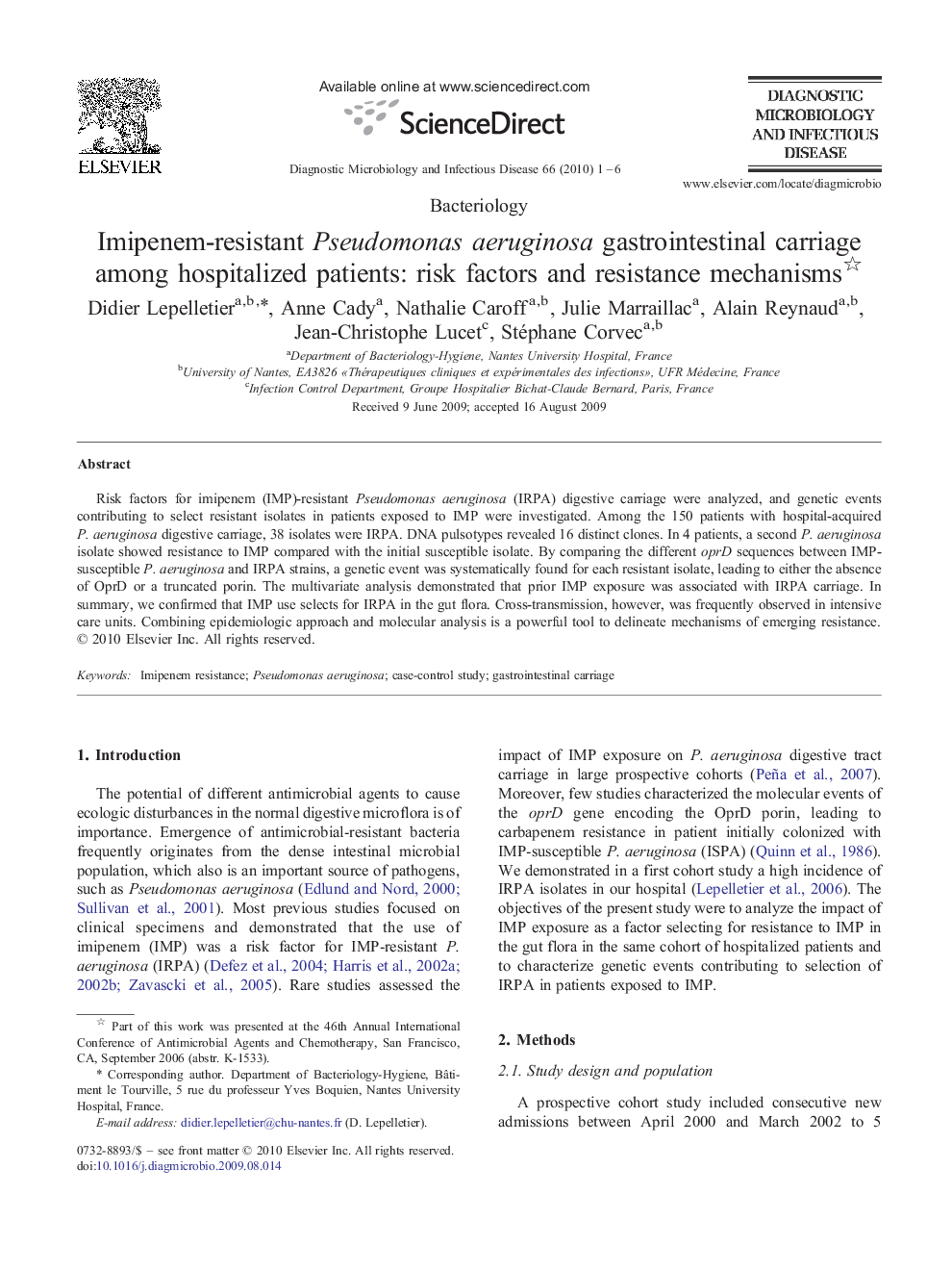| Article ID | Journal | Published Year | Pages | File Type |
|---|---|---|---|---|
| 3347508 | Diagnostic Microbiology and Infectious Disease | 2010 | 6 Pages |
Risk factors for imipenem (IMP)-resistant Pseudomonas aeruginosa (IRPA) digestive carriage were analyzed, and genetic events contributing to select resistant isolates in patients exposed to IMP were investigated. Among the 150 patients with hospital-acquired P. aeruginosa digestive carriage, 38 isolates were IRPA. DNA pulsotypes revealed 16 distinct clones. In 4 patients, a second P. aeruginosa isolate showed resistance to IMP compared with the initial susceptible isolate. By comparing the different oprD sequences between IMP-susceptible P. aeruginosa and IRPA strains, a genetic event was systematically found for each resistant isolate, leading to either the absence of OprD or a truncated porin. The multivariate analysis demonstrated that prior IMP exposure was associated with IRPA carriage. In summary, we confirmed that IMP use selects for IRPA in the gut flora. Cross-transmission, however, was frequently observed in intensive care units. Combining epidemiologic approach and molecular analysis is a powerful tool to delineate mechanisms of emerging resistance.
